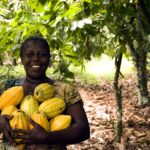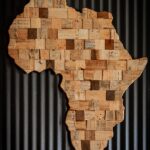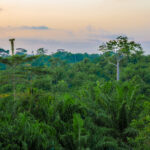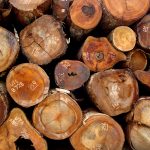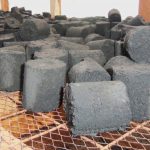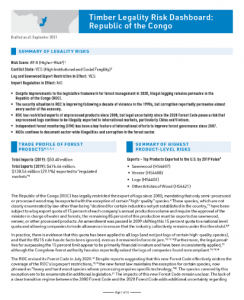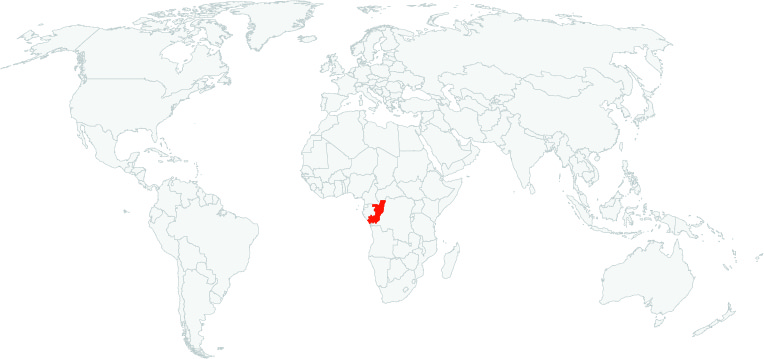
- Despite improvements to the legislative framework for forest management in 2020, illegal logging remains pervasive in the
Republic of the Congo (ROC). - The security situation in ROC is improving following a decade of violence in the 1990s, but corruption reportedly permeates almost every sector of the economy.
- ROC has restricted exports of unprocessed products since 2000, but legal uncertainty since the 2020 Forest Code poses a risk that unprocessed logs continue to be illegally exported to international markets, particularly China and Vietnam.
- Independent forest monitoring (IFM) has been a key feature of international efforts to improve forest governance since 2007.
- NGOs continue to document sector-wide illegalities and corruption in the forest sector.
Read more by downloading the Republic of the Congo Timber Legality Risk Dashboard here.
Using a unique dataset from a survey of 1035 households in the Tridom landscape in the Congo basin, the reports model shows that: (1) Households imitate the deforestation decisions of their neighbors; (2) A marginally higher income from cocoa production-based livelihood portfolios is associated with six to seven times higher deforestation compared to other livelihood strategies with a significant spillover effect on neighboring households’ deforestation. The increase in income, mainly from cocoa production-based livelihoods in open-access systems can have a negative effect on forests. Households with a higher share of auto-consumption are associated with lower deforestation. If economic development brings better market access and lower auto-consumption shares, this is likely to positively influence deforestation. Without proper land use planning/zoning associated with incentives, promoting sustainable agriculture, such as complex cocoa agroforestry systems, may lead to forest degradation and deforestation.
The first high-resolution (5 m) and continental-scale
mapping of land use following deforestation in Africa, including humid and dry forests.
Results show, not surprisingly, that the causes of forest loss vary by region. In general, small-scale cropland is the
dominant driver of forest loss in Africa, with hotspots in Madagascar and DRC. In addition, commodity
crops such as cacao, oil palm, and rubber are the dominant drivers of forest loss in the humid forests of
western and central Africa, forming an “arc of commodity crops” in that region. At the same time, the
hotspots for cashew are found to increasingly dominate in the dry forests of both western and southeastern Africa, while larger hotspots for large-scale croplands were found in Nigeria and Zambia.
The tropical forests of the Congo Basin are home to nearly 1 million indigenous people. After thousands of years of survival, deforestation is perhaps their biggest challenge yet. On International Day of the World’s Indigenous Peoples, FRANCE 24 takes a closer look at what’s being done to help.
This overview report assesses the region’s progress in developing timber traceability systems to reduce additional pressures from over-exploitation due to corruption, insufficient accountability, and illegal logging. It examples how Tanzania’s established timber traceability system may offer valuable lessons to guide Congo Basin countries in a stepwise process to overcome complex models, gain political buy-in and secure government ownership.
Officials say most member states in the Central African Economic and Monetary Community, CEMAC, have failed to honor a ban on raw timber exports that was enacted last year to conserve forests and create jobs by locally processing wood.
The six member countries of the Central African bloc agreed to ban raw timber exports starting in January 2022. The ban is aimed partially at combating climate change by protecting forests from excessive logging.
However, an online meeting of CEMAC forestry and finance ministers Thursday found that only Gabon and the Republic of Congo have suspended the timber exports to China and other Asian countries. Cameroon, the Central African Republic, Chad and Equatorial Guinea have not.
The deadline for implementing the ban was initially pushed back to January 2023 to give the CEMAC countries more time to comply. Motaze suggested the bloc push back the deadline again to 2025 so countries have more time to invest in wood processing equipment and in training workers.
The Republic of Congo is suspending the export of timber in the form of logs. The measure came into force on Sunday 1 January 2023 at the port of Pointe-Noire. Congo joins Gabon, which has been applying this sustainability approach to forest management since 2010. Cameroon, on the other hand, continues to export logs, to the detriment of environmentalists and international agreements on forest preservation.
In Central Africa, the ban on the export of logs will no longer take effect from 1 January 2022. The entry into force of this measure has been postponed to an unspecified date. This was the outcome of the 38th ordinary session of the Council of Ministers of the Economic Union of Central Africa (UEAC), which ended on 28 October 2022 in Yaoundé, Cameroon.
This is a retropalent for the countries of the Economic Union of Central Africa (UEAC). The entry into force of the ban on timber exports in the form of logs, which was set for 1 January 2023, has been postponed to a date yet to be determined.
This week, the Minister of Forest Economy of the Republic of Congo announced the end of log exports on January 1, 2023. Our association welcomes this decision, which will allow for the long-term advancement of the country’s wood processing industry.
Congo is now entering an important stage. 2023 will be a year of transition, not necessarily easy. For various reasons (covid, energy crisis, raw material crisis), companies have had difficulties over the past two years to prepare for this decision and to equip themselves with the new industrial means necessary to absorb the volumes of wood that are no longer exported. Discussions between the authorities and operators in the sector should take place in the short term and could facilitate the implementation of this policy, to clarify certain questions concerning, among other things, the export of heavy timber, or the future of commercial contracts currently in force.InCameroon, discussions between the authorities and the GFBC seem to indicate the opening of a 3-year transition period.
Illegal logging is a growing feature of transnational organized crime in Africa, often facilitated by the collusion of senior officials, with far-reaching security and environmental implications for the countries affected.
In view of the entry into force, from January 1 2023, of the measure prohibiting the export of logs in the six CEMAC countries (Cameroon, Congo, Gabon, Chad, CAR and Equatorial Guinea), a workshop devoted to the validation of the regional guidelines for taxation and forest certification is currently being held in Libreville.
Smoked fish is a popular delicacy in Congo. Locally known as Makwala, the fish is craved for its rich aroma. But for Makwala to meet the preferences of its ardent consumers, a lot of wood has to burn. The high demand for fuel to smoke fish is driving deforestation in Congo. Vast areas of mangrove forests have disappeared as a result.
Click here to access the Global Illegal Logging and Associated Trade (ILAT) Risk assessment tool and to download the Forest Trends User Guide describing the functionality of the ILAT Risk Data Tool.
Click here to access the Cattle Data Tool.

